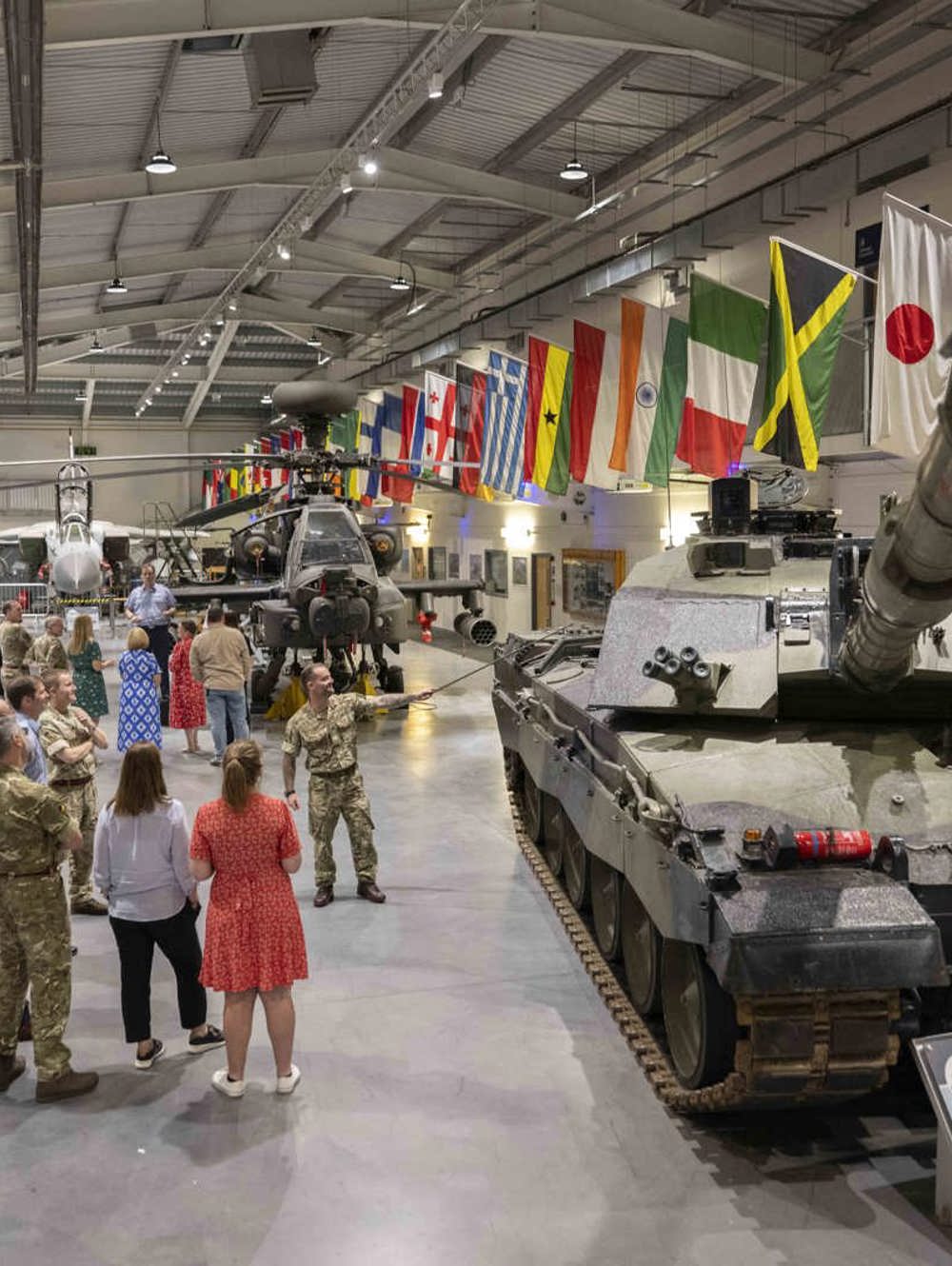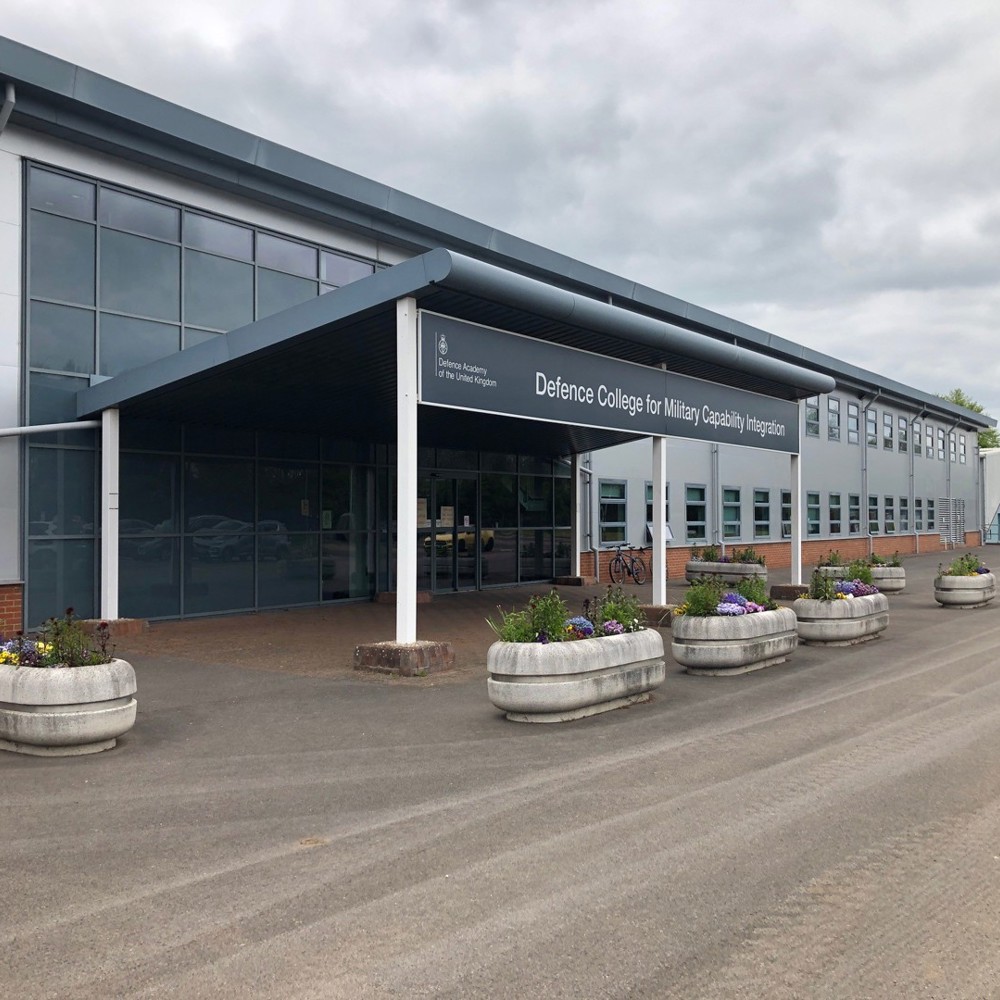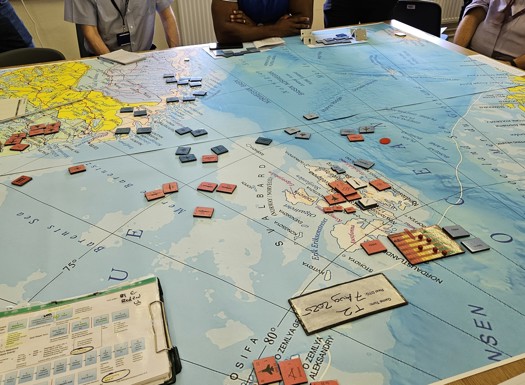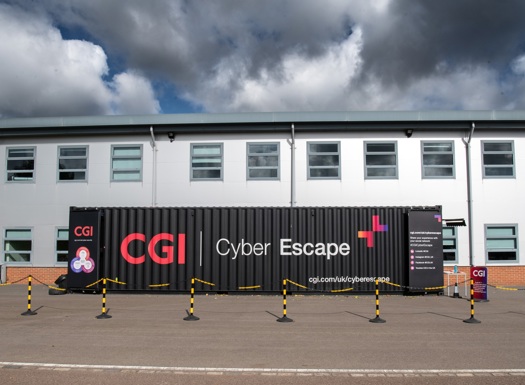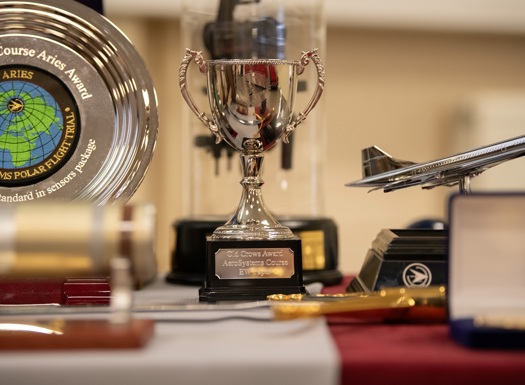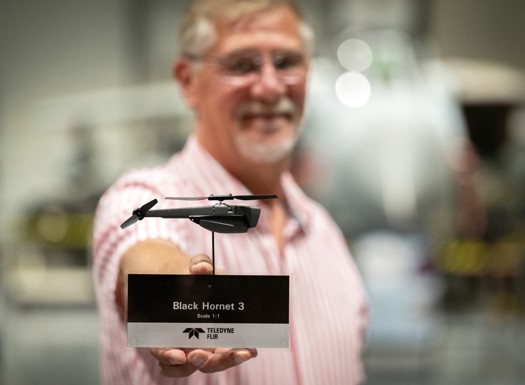Enhancing strategic advantage through science and technology
The Defence College for Military Capability Integration (DCMCI) is the Defence Academy’s technical college with a mission to strengthen defence’s technological edge and decision advantage across the defence enterprise.
Established in 2021, we can trace our delivery of technical education back to 1772, with some component schools having evolved from the 1953 Royal Military College of Science here at Shrivenham.
DCMCI is a diverse college delivering integrated STEM (Science, Technology, Engineering and Mathematics) focused education and training. They offer multiple postgraduate programmes, alongside short courses and masterclasses, through face-to-face, digital, and blended learning, along with specialist advice in the following subjects:
• weapons, ordnance, munitions and explosives
• cyber
• digital and Information skills
• battlespace technology
• military capability management
• aerospace technology
• military electronic systems engineering
• wargaming, modelling and simulation
Each year, DCMCI welcomes over 10,000 students for standalone modules and short courses, with over 800 postgraduate students studying at any one time, which includes overseas students on postgraduate programmes delivered collaboratively with our academic partner, Cranfield University.
To ensure DCMCI’s education reflects the growing pace of technology, capability development and adversary innovation, we maintain a wide network of academic, Think Tank, international and industry partners. We also work closely with the government science and technology community, in particular the Defence Science and Technology Laboratory (Dstl).
The Defence Capability Management School (DCMS) provides capability development training and education to MOD personnel to enhance capability acquisition and management outcomes.
In partnership with academia, the school provides a range of learning opportunities from short online familiarisation courses up to master’s level degrees - including specialist technical education in selected areas.
DCMS has four main areas of focus:
- capability acquisition - providing a pathway of role specific training aimed at improving acquisition related knowledge and skills of personnel across the MOD
- technology integration/ specialist technologies - providing technical education in priority areas
- technical assurance
- innovation
Defence WOME Engineering School educates defence personnel in the first principles of WOME (Weapons, Ordnance, Munitions or Explosives) to allow future threats to the country’s safety to be assessed and reduced.
We deliver fundamental education to ensure safety in explosives, lasers, and petrochemicals at home, on operations and across defence.
Our courses are delivered through a blended model of classroom, explosive and small arms practicals, and laboratory work.
DWES works in collaboration with industry, partners across government (PAG) and the military within the explosive safety industry. The pinnacle of this is the research and development conducted on the Explosive Ordnance Engineering MSc course. Industry partners provide DWES students topics to research and feedback on within their 12 months on the course, enhancing their knowledge on current threats and capabilities.
To assist DWES in its outputs is the Light Weapons Wing, which is staffed by subject matter experts (SME) in small arms, who have approximately 1400 different types of small arms spanning from a Brown Bess Musket to the latest belt fed machine gun. These SMEs not only assist in the educational delivery but support multiple PAGs as bespoke consultants for operations, training and research and development.
The Joint Information Activities Group (JIAG) trains around 650 personnel a year in a variety of communications disciplines, ranging from working with the media to information operations, audience analysis, operational-level planning and psychological operations.
It provides direct support to defence collective training activities and supports capacity building through individual advisers and bespoke training packages, both in the UK and overseas. Course details can be found in 2024DIN07-139 on MODNET. They include the following:
- Joint Information Activities Course
- Joint Information Operations Planning Course
- Audience Analysis Course
- Joint Media Practitioners’ Course
- Joint Media Operations Planning Course
- Joint Digital Media Course
- Defence Spokesperson Course
The aim of the Defence Airworthiness and AeroSystems Technology School (DAATS) is to prepare UK and overseas military officers, senior non-commissioned officers, and civil servants for demanding aviation-related roles in support of aviation duty holders. This is required by the Military Aviation Authority and was recommended by Lord Justice Haddon-Cave QC following the loss of Nimrod XV230.
DAATS, in partnership with Cranfield University, is responsible for delivering courses up to and including postgraduate level. The portfolio is mostly centred on preparing selected students for a variety of specialist roles in military airworthiness, test and evaluation, capability and acquisition.
Courses within DAATS portfolio are as follows:
- Military Aerospace and Airworthiness Scheme (options include attending modules on a stand-alone basis and studying for a MSc (part-time))
- AeroSystems Course (options include graduating with the award of QAS and studying for the MSc)
- Airworthiness of Military Aircraft – fundamentals module
The Defence Wargaming, Modelling and Simulation School (DWMSS) provides education for all ranks, at every operational level, on all aspects of wargaming, simulation, modelling.
Simulation, modelling, operational analysis, research and wargaming offer the ability to deliver value to defence at all levels, by permitting the examination of systems, processes and equipment in a repeatable manner that is safe, cheaper, and with a much-reduced impact on the environment, than using real equipment.
More than 60% of the MOD’s regular training activities can benefit from modelling and simulation. The school delivers courses up to postgraduate level in simulation, modelling, and operational analysis/research.
The school delivers simulation and modelling pathways, up to postgraduate level, for defence customers helping to develop an adversarial perspective for fighting in the ‘Information Age’, through simulation, and the study of threats.
In addition, we provide advice and demonstrations on the use of wargaming to MOD, other government departments and worldwide to other partner governments and agencies.
The Defence Digital and Information School (DDIS) provides information, knowledge, data and digital education and training to approximately 2,000 students per year, made up of civil servant and military knowledge and information (KIM) professionals, across a 1-star to OR2 rank range.
Our courses prepare students for courses for the JSP 441 specified roles of senior information officers, information managers, information support officers, information support assistants, records managers, and freedom of information practitioners.
DDIS is the only specialist KIM training school in the MOD, with our courses delivered residentially and virtually, using the Defence Learning Environment and Microsoft Teams. Training can also be delivered by franchises which have suitably qualified and experienced instructors.
Effective knowledge and information management sits at the heart of all operational and business delivery across the MOD (and wider government). The recently updated Defence Review emphasised the need to embrace digital, automation and information. The courses delivered by DDIS are central to this aim. Recent operational reports have concluded that ‘In an age of high data and information requirements, the information management specialisation proved invaluable … and the information manager will undoubtedly be the battle-winning enabler to any commander in the information age’.
The Technology Hub is defence’s premier immersive and interactive teaching space, where the past, present, and future of military technology converge.
The Technology Hub comprises multi-domain integration focus areas and zones, and a substantial display of contemporary and historical military platforms (NATO, coalition and adversarial), capabilities, technologies and equipment. The focus areas and zones include artillery systems, platforms and systems, remote piloted and autonomous systems, armoured vehicles, air and space, weapons, ordnance, munitions and explosives (WOME), modelling and simulation, mobility and survivability and separately, a self-contained Guided Weapons Hall and Light Weapons Wing.
The platforms, equipment and exhibits range from historical through to those currently in service and include a selection of foreign examples. The relevance of historical and ‘newly retired’ or ‘just out of service’ equipment endures, as often the original principles of design, capability and use remain true. Many of the older platforms are still in use today, while others inspire more topical challenges to be overcome.
The title ‘Hub’ is purposely used, as DCMCI reaches out across wider defence, partners across government, industry and academia to share and collaborate with resources and capabilities to deliver or support training, education, learning and research.
The Defence Cyber Academy, opened in 2022, provides training and education that develops a highly skilled, global cyber community for UK defence and partners.
Utilising modern tools and techniques, we offer flexible and accessible training to UK military, government partners, industry and non-government departments. Where appropriate, the DCA also provides international cyber training products and services to international partners and allies.
We provide expert training to the whole force, teaching essential cyber elements and skills, in a step-by-step approach, to work successfully in cyber-related roles, protecting defence’s networks and contributing to wider UK security.
Our purpose is to develop defence personnel to achieve success in cyber operations and leadership in government.
The Defence STEM Undergraduate Sponsorship (DSUS) scheme works with the military and MOD Civil Service to encourage the recruitment of STEM (Science, Technology, Engineering and Mathematics) undergraduates into critical roles within defence to sustain the MOD’s requirements for technical specialists, shaping the next generation of talent and skills in response to the pace of change in military capabilities, technology and cyber.
As part of the scheme students on a military sponsorship will join their respective university service unit (University Royal Naval Unit, University Officer Training Corp and University Air Squadron) with the aim of familiarising themselves with military life. Those joining as a MOD civil servant sponsored student will be offered 6-week paid summer placements to support familiarisation with their sponsoring employers who may be but not limited to, Defence Nuclear Enterprise, Dstl and Chief of Defence Logistics and Support.
The scheme is open to undergraduates studying STEM subject in universities across the UK. Successful applicants will be provided with a financial package which includes payment of tuition fees (where applicable) along with an annual bursary or paid placement and additional benefits. Upon graduation applicants will be guaranteed a position of employment within their sponsoring organisation as an officer within the military or as a higher executive officer within the Civil Service.
